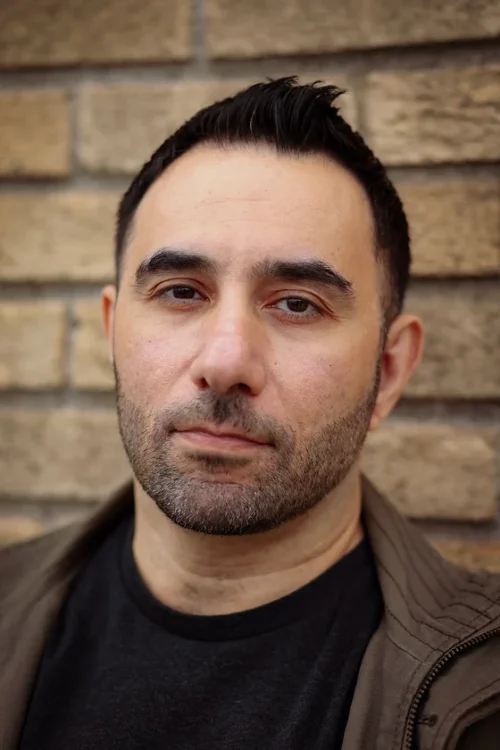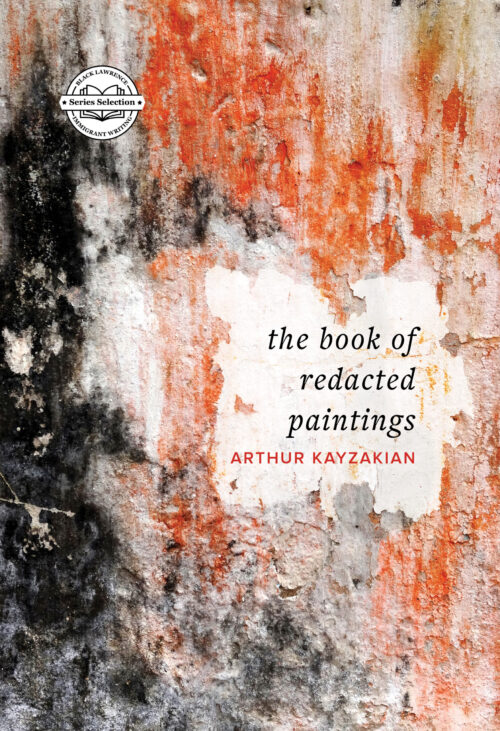1in the year of my refuge, i soothe my father’s tumors; he closes his eyes and flies like aman with wings torn from his back. someone must have ripped heaven from the sky andpinned it to the back of his eyelids. someone must have told him living is as hopeless asmaking love in front of mirrors.2my father died when he was twelve. the doctors zipped the body bag over his face, but myfather refused his ghost the way he refused hospital flowers. when he was resurrected, hissperm was shaded with an afterlife; now, when he coughs, the scar on his right lung takesthe shape of a dead boy bombing out of his chest.3my father once said he had a talent for getting sick. in the cavity of his lung the dark scaropens a narrow door to heaven. my father’s luck can make a tree ashamed of itself:hanging low, branches to the ground, grateful for its thousand years while my fatherslides off his body hoping to land on a leaf. who knows, maybe in heaven the dead are notconverted to trees.4my father is a mountain with houses built on his back. from a distance, the lit windowsglow like the eyes of a moth flickering in the night. nobody wants to die. forced to come out of hiding, his arms up in the air, awaiting demolition.5in the year of my refuge, i rub my father’s back and foresee his silhouette slippingthrough a door: maybe death catapults us to a hall of mirrors pretending to serve thebody when in a larger realm, we are trapped in a spectrum between worlds foreverglossing over the way we look.6once my father dropped a sugar cube in a cup of hot tea. when it dissolved andevaporated to the surface—this, he said, is how important we are.
Portrait of My Father’s Dissolution
Feature Date
- July 3, 2024
Series
Selected By
Share This Poem
Print This Poem
“Portrait of My Father’s Dissolution” from The Book of Redacted Paintings: by Arthur Kayzakian
Published by Black Lawrence Publishing in May 2023
Copyright © 2023 by Arthur Kayzakian
All rights reserved.
Reproduced by Poetry Daily with permission.

Arthur Kayzakian is the finalist for the 2023 Kate Tufts Award, and the winner of the 2021 inaugural Black Lawrence Immigrant Writing Series for his collection, The Book of Redacted Paintings, which was also selected as a finalist for the 2021 Philip Levine Prize for Poetry. He is the recipient of the 2023 creative writing fellowship from the National Endowment for the Arts. He is also the winner of the Open Chapbook Competition for his chapbook, My Burning City. He has been a finalist for the Locked Horn Press Chapbook Prize, Two Sylvias Press Chapbook Prize, the C.D. Wright Prize, the Sunken Garden Poetry Prize, and the Black River Chapbook Competition. He is a contributing editor at Poetry International and a recipient of the Minas Savvas Fellowship. He serves as the Poetry Chair for the International Armenian Literary Alliance (IALA). His work has appeared in several publications, including The Adroit Journal, Portland Review, Chicago Review, Cincinnati Review, The Southern Review, Michigan Quarterly Review, and Witness Magazine.
Formally various, narratively propulsive, and relentlessly earnest in its psychospiritual excavations, Arthur Kayzakian’s The Book of Redacted Paintings is a sincere achievement. That it represents the author’s first full-length collection makes it even more remarkable. In one poem, the sound of gunfire “splits the wind in half.” In another, “It rains, as if heaven crashes, it rains.” Kayzakian’s are poems of real stakes and scale, of the minute and the hour and the lifetime. His subjects—art, family, masculinity, empire—remain as timely as ever, but it’s the uncanny juxtapositions of lyric and visual art that make The Book of Redacted Paintings an unforgettable text.
—Kaveh Akbar, author of Calling a Wolf a Wolf and Pilgrim Bell
In his poignant and devastating debut collection, Arthur Kayzakian skillfully excavates personal memory and family history to reclaim a missing heirloom. Through poems ranging in documentary, to visual, to lyrical, Kayzakian confronts how the grief of war and displacement are compounded by the loss of stolen familial objects, beloved items that served as a reminder of the life before. Where the harms of war are intensified by new harms, these poems push against historical erasure to establish a new narrative. Kayzakian stirs with poetic prowess while achieving generational reclamation.
—Mai Der Vang, author of Yellow Rain
Poetry Daily Depends on You
With your support, we make reading the best contemporary poetry a treasured daily experience. Consider a contribution today.




